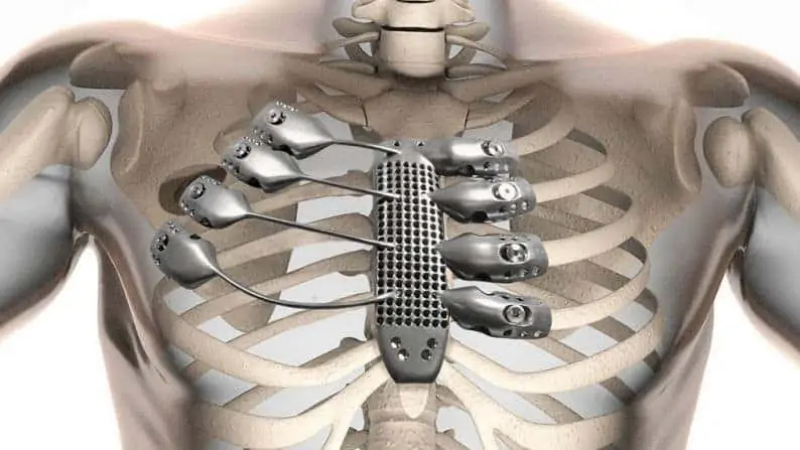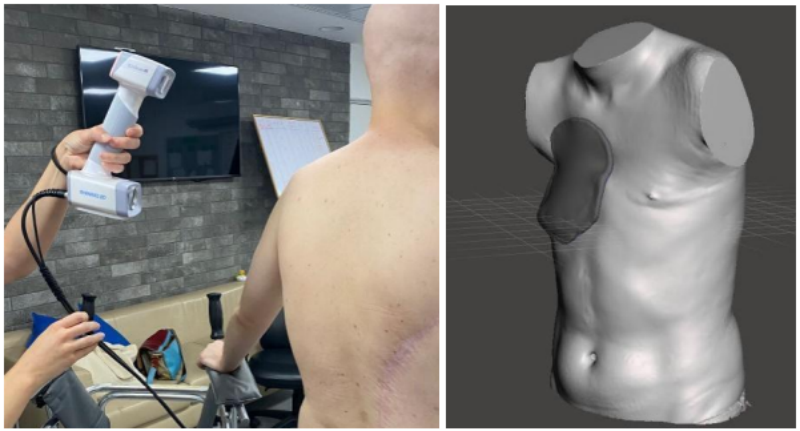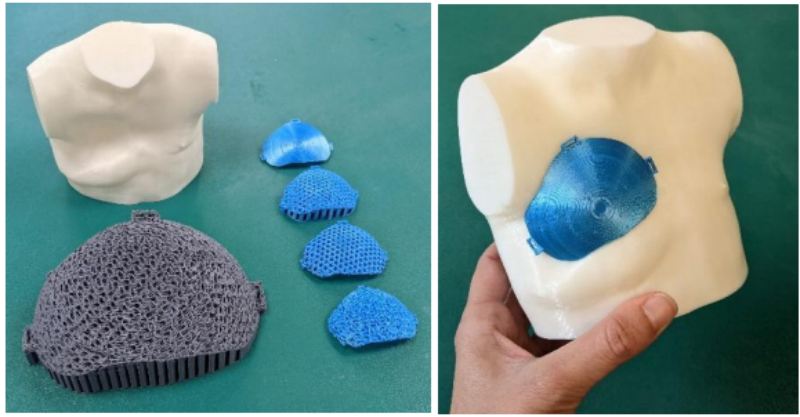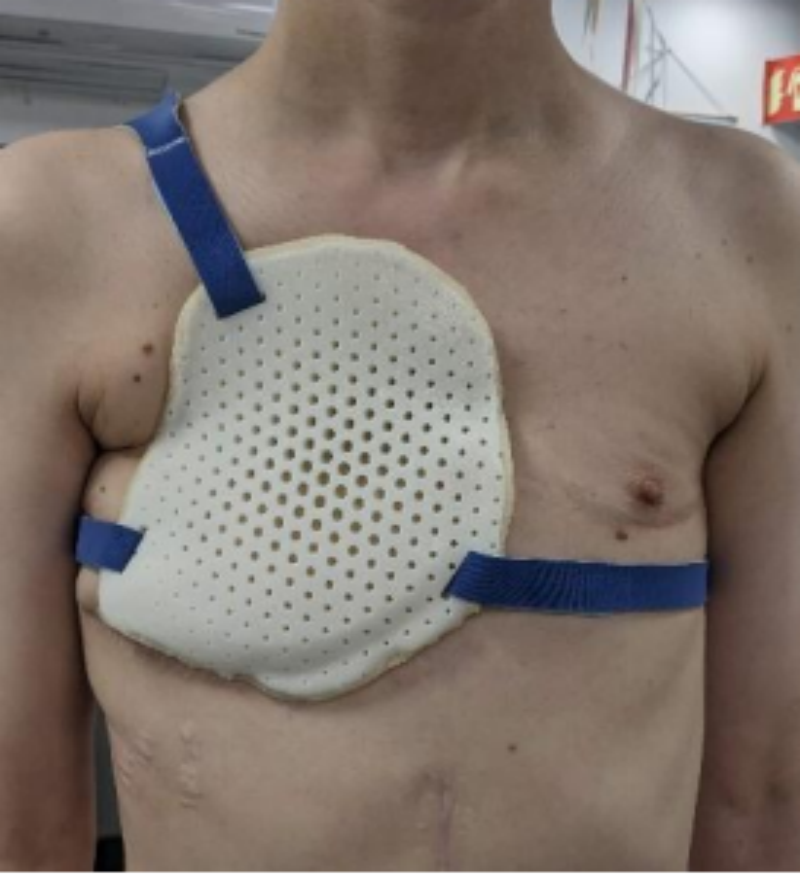An Israeli medical lab used the EinScan H to create a custom-fit chest protector for a patient experiencing severe pain.
- Name: 3D Lab at RMC Innovation
- Location: Israel
- Service: Detection and research of unmet clinical needs to develop and implement efficient solutions
- Need: Design a custom-fit chest protector for a patient with a missing chest portion
- Solutions: SHINING 3D EinScan H 3D scanner and a 3D printer
- Result: An inexpensive, non-invasive, and custom-fit chest protection solution for the patient
Table of Contents
Unbearable pain after tumor removal
This case concerns a 28-year-old man with metastatic sarcoma, a cancerous tumor that spreads to other parts of the body. During the removal of the tumor, surgeons had to excise a significant portion of his right chest wall. This caused him severe, paralyzing pain, making it challenging to perform daily activities. He mentioned that even taking public transportation was painful; any slight, accidental touch to his chest made him terribly suffer.
The patient sought help from the Rabin Medical Center (RMC), one of the largest medical facilities in Israel. RMC is a national leader in fields such as oncology, transplantation, and cardiology. It is also home to the Innovation Lab, a.k.a. RMC Innovation, a small team dedicated to resolving unique medical problems.
Yarden Mor, RMC Innovation’s head of 3D printing and design, received the challenge from the patient’s doctor, Dr. Inbar Nardi Agmon, and led the effort to address the patient’s chest wall pain problem. With experience working for medical 3D printing and product development companies, she specializes in integrating technology and design in the medical field.
Custom-fit chest protection: an unmet need
The patient and Dr. Nardi Agmon, specialist in internal medicine and cardiology, considered several options before reaching out to RMC Innovation.
They initially consulted with thoracic surgeons and searched for a suitable solution online, but there were no products that fit his needs. The only options found were rib fracture support braces or chest protectors for high-contact sports. Both options are constructed as a firmed chest belts and are not able to adjust to particular chest deformations.
Another potential solution that had been considered was transplanting a 3D printed titanium rib. However, this transplant would have been highly invasive and inappropriate for a patient with a malignant chest tumor. Plus, this option was expensive.

3D printed rib implant solution. Source: ZME Science
The patient was left with an unmet need that the 3D lab at RMC Innovation tackled with 3D scanning.
Making a custom-fit chest protector with 3D scanning and 3D printing
RMC Innovation found that the best solution was to create a custom chest protector. One that would protect the patient’s bare chest wall without causing him any pain. They needed to make a plate that would perfectly cover the uniquely shaped area.
To do this, their first step was to obtain an accurate 3D model of the patient’s chest. The team used its EinScan H, a 3D scanner that is ideal for body scanning cases. This handheld 3D scanner is equipped with an infrared light source. It’s efficient for capturing complex contours and details, and its invisible infrared light prevents any visual discomfort during the process. The 3D Lab team was able to scan the patient’s sensitive chest wall in minutes without ever coming into physical contact with it.

Scanning using the EinScan H (left); 3D model of the patient’s body (right)
With the scanned data, the design team was then able to reverse engineer a custom-fit chest protector. They 3D printed the patient’s torso at a smaller scale so they could try on different design iterations and find the best fit.
Their goal was to find the most lightweight, comfortable, and robust solution by testing out different 3D printing settings. For example, they tried different printing patterns and densities.

3D printed patient body models and diverse chest protector models
The selected model was reprinted to actual size and covered with soft padding to avoid skin chafing. Finally, the straps were installed. The patient was actively involved throughout the installation and adjustment of the chest protector until the final result was approved:

The patient wearing his final, custom-fit chest protector.
Conclusion
Common medical issues often have widespread solutions. However, in unique cases like these, patients are often left with no choice but to accept their symptoms.
The patient was unable to find any viable solution to painlessly protect his wound. But thanks to 3D scanning– with the portable and efficient EinScan H– CAD (Computer Aided Design) and 3D printing, the team was able to make a custom-fit chest protector for him.
It was not only a perfect fit, but also a cost-efficient one. This is yet another example that illustrates the exciting synergies between 3D scanning and 3D printing. Together, these two technologies offer a promising future for many more patients who need tailor-made solutions to unmet needs.
Would you like to integrate 3D scanning and 3D printing to your workflow? Contact our engineers for information and guidance or visit our EinScan H series page to learn more.





